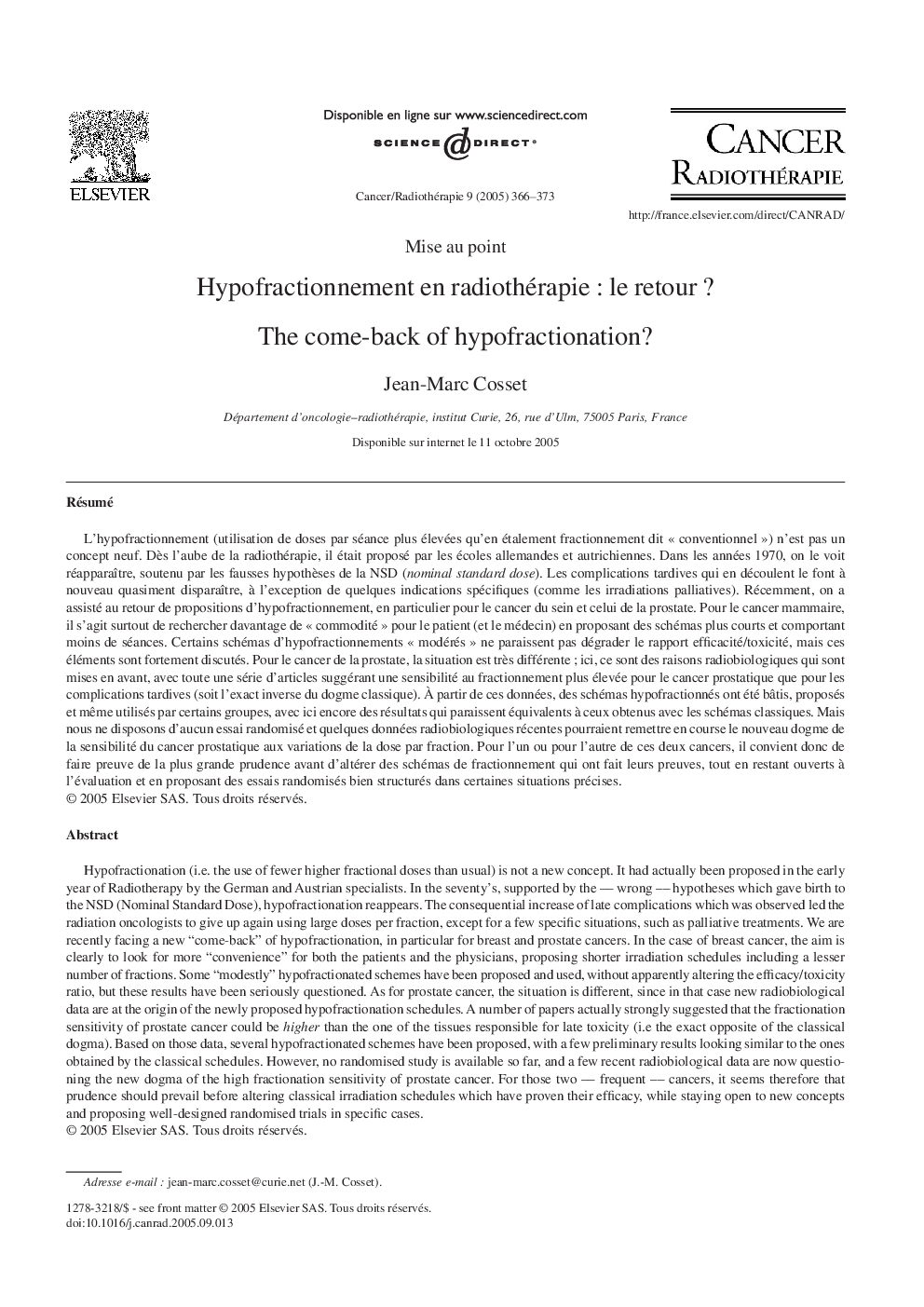| کد مقاله | کد نشریه | سال انتشار | مقاله انگلیسی | نسخه تمام متن |
|---|---|---|---|---|
| 9905480 | 1546748 | 2005 | 8 صفحه PDF | دانلود رایگان |
عنوان انگلیسی مقاله ISI
Hypofractionnement en radiothérapie : le retour ?
دانلود مقاله + سفارش ترجمه
دانلود مقاله ISI انگلیسی
رایگان برای ایرانیان
کلمات کلیدی
موضوعات مرتبط
علوم زیستی و بیوفناوری
بیوشیمی، ژنتیک و زیست شناسی مولکولی
تحقیقات سرطان
پیش نمایش صفحه اول مقاله

چکیده انگلیسی
Hypofractionation (i.e. the use of fewer higher fractional doses than usual) is not a new concept. It had actually been proposed in the early year of Radiotherapy by the German and Austrian specialists. In the seventy's, supported by the -- wrong -- hypotheses which gave birth to the NSD (Nominal Standard Dose), hypofractionation reappears. The consequential increase of late complications which was observed led the radiation oncologists to give up again using large doses per fraction, except for a few specific situations, such as palliative treatments. We are recently facing a new “come-back” of hypofractionation, in particular for breast and prostate cancers. In the case of breast cancer, the aim is clearly to look for more “convenience” for both the patients and the physicians, proposing shorter irradiation schedules including a lesser number of fractions. Some “modestly” hypofractionated schemes have been proposed and used, without apparently altering the efficacy/toxicity ratio, but these results have been seriously questioned. As for prostate cancer, the situation is different, since in that case new radiobiological data are at the origin of the newly proposed hypofractionation schedules. A number of papers actually strongly suggested that the fractionation sensitivity of prostate cancer could be higher than the one of the tissues responsible for late toxicity (i.e the exact opposite of the classical dogma). Based on those data, several hypofractionated schemes have been proposed, with a few preliminary results looking similar to the ones obtained by the classical schedules. However, no randomised study is available so far, and a few recent radiobiological data are now questioning the new dogma of the high fractionation sensitivity of prostate cancer. For those two -- frequent -- cancers, it seems therefore that prudence should prevail before altering classical irradiation schedules which have proven their efficacy, while staying open to new concepts and proposing well-designed randomised trials in specific cases.
ناشر
Database: Elsevier - ScienceDirect (ساینس دایرکت)
Journal: Cancer/Radiothérapie - Volume 9, Issues 6â7, November 2005, Pages 366-373
Journal: Cancer/Radiothérapie - Volume 9, Issues 6â7, November 2005, Pages 366-373
نویسندگان
Jean-Marc Cosset,